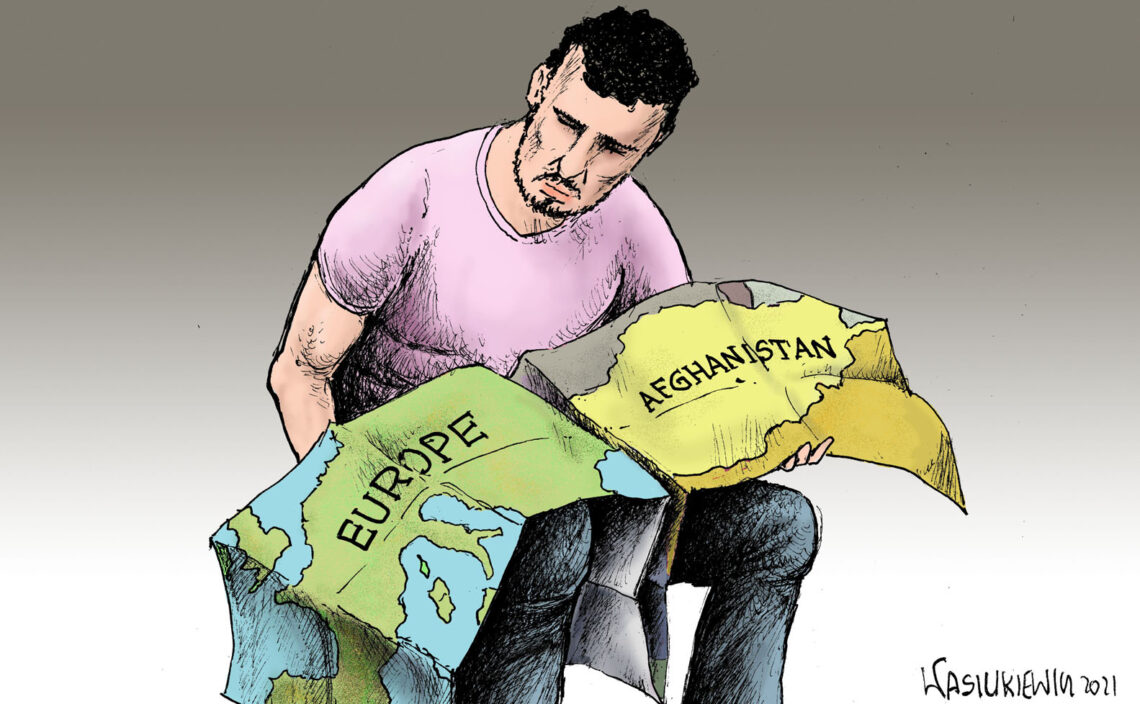Afghanistan’s sad story – and a new wave of immigration
The U.S. and its allies are retreating from Afghanistan after 20 years of futile efforts to stabilize the country. The winners are the Taliban. Under their rule, civil war will continue, increasing further the push of refugees toward Europe’s borders.

After 20 years of war, the power in Afghanistan returns to the Taliban, the country’s brutal Islamist movement and military organization. The goal of the war, which started in 2001 after the 9/11 attack against the United States, was a regime change in Kabul. The Taliban, who had ruled most of the country since 1996, established an oppressive system and gave shelter to terrorist groups, including al-Qaeda, and especially, Osama bin Laden. The U.S. arranged a coalition of Afghan opposition groups and invaded the country with their support.
The international community naively presumed that Afghanistan could be pacified and troops from various countries could sustain a central government there. This produced an illusion of democracy. The concept has failed, and now the U.S. has decided to retreat. The other countries, mainly NATO members, followed.
The West hypocritically talks about reaching peace through negotiations between the Kabul government and the Taliban. This is merely a ruse to cover the defeat and betrayal of the anti-Taliban forces in Afghanistan.
Civil war looms
The Taliban will sweep away the present government, at best maintaining a charade of a transition. This means death sentences for many in the country, as well as the repression and harsh subjugation of women. A new wave of Afghan refugees and migrants has started flowing toward Iran. As Iran’s economic and social conditions are also grim, they are already trying to transit into Turkey. From there, many will attempt to reach Europe.
Some of the ethnic leaders will raise militias to defend their areas against the Taliban regime.
Afghanistan is a mountainous, multiethnic Islamic country with a resident population estimated at 37 million; some 3 million live as refugees in Pakistan and Iran. The largest ethnic group are Pashtuns (42 percent), Tajiks (27 percent), Hazaras (9 percent) and Uzbeks (9 percent). Many are leaving the country to either save their lives or – especially women – preserve their freedom. Another wave of emigration is inevitably coming, as the Taliban will not bring peace. Some of the ethnic leaders raised militias to – rightfully – defend their areas against the new regime.
Mohammad Ismail Khan, who successfully fought the Taliban during their previous period in power and is known as the “Lion of Herat,” has already declared that he would not accept Taliban rule and has mounted resistance in his territory near the borders with Iran and Turkmenistan. An Uzbek leader in exile in Turkey, General Abdul Rashid Dostum, has announced his return to Jowzjan Province to suppress the Taliban in northeastern Afghanistan. Also, Abdul Ghani Alipur, a Hazara overlord, is preparing his militia to resist the Taliban (the Hazaras are a Shia minority in primarily Sunni Afghanistan). Others, such as Atta Muhammad Nur, a Tajik strongman in the north, may also resist. A so-called “peace,” if it occurs in Afghanistan, will come out of a new civil war. To what extent the local leaders will collaborate to achieve a common goal is unsure.
Uncontested Taliban rule would return the entire country to misery and oppression. However, over the last two decades, education in Afghanistan has improved, including for women. In addition to opposition from local leaders, the more educated parts of the society might help reduce the fundamentalists’ grip on the country. In any case, all this will result in a new wave of refugees flowing into Turkey.
Turkey has done an admirable job hosting 3.7 million refugees from Syria and integrating many of them into its society. It also has had an influx of an estimated 100,000 Afghans. Now, the Turks must prepare for new waves of refugees from that direction. Another problem lurks at the border with Iran: as tensions and economic issues deepen in that country, many Iranians are already trying to migrate to a more prosperous, free Turkey.
We should show understanding for the Afghan people’s plight.
All this may seem far away from Europe. However, Europe cannot expect that Turkey will hold the floodgates closed at its own expense. The remark of the chancellor of Austria that refugees from Afghanistan should find asylum in the neighboring countries shows a combination of naivete and helplessness typical of today’s Europeans. Looking at these neighboring countries, one sees Tajikistan, an impoverished mountain state with a minuscule capacity to receive immigrants. Uzbekistan has its own problems and makes for a problematic host. Iran has a sinking economy, and its internal repression is also fierce. And India is unlikely to give shelter to Muslims due to its Hindu-nationalist politics.
Have no illusions: the Afghan refugees will move west. It is inevitable, and we should show understanding for their plight.
Unfortunately, European countries have mishandled their immigration policies. The German government burned its fingers with the Willkommenskultur (Welcoming culture) of encouraging immigration and accepting newcomers without properly checking claims before granting refugee status. Oddly, while the European governments’ data collection policies increasingly violate citizen privacy, it was considered intrusive to demand documents and claim proof from immigrants.
In these circumstances, it is essential that the countries in Europe collaborate more closely with Turkey and stop the widespread bashing of that country. Active discussions with Tajikistan and Uzbekistan, including support package offers, would be more helpful than empty slogans from European capitals. More effective border controls will be increasingly important. Also, European governments need to demonstrate more determination and ability to repatriate the immigrants who break the law.
